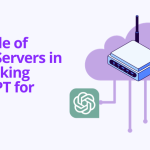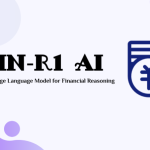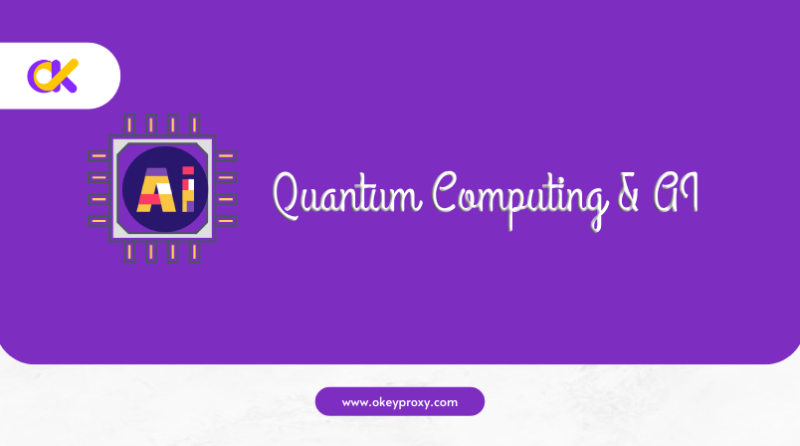Imagine a world where complex problems are solved in seconds, where artificial intelligence (AI) systems learn and adapt at unprecedented speeds, and where data security reaches unbreakable standards. This is the promise of combining quantum computing with AI—a fusion of Quantum AI that could redefine technology and our daily lives.
Understanding Quantum Computing
Quantum computing leverages the principles of quantum mechanics to process information. A common question of definition is “Quantum Computing vs. Classical Computing”. Unlike classical computers that use bits as the smallest unit of data (representing either a 0 or a 1), quantum computers use quantum bits, or qubits. Qubits can exist in a state of 0, 1, or both simultaneously—a phenomenon known as superposition. This allows quantum computers to perform many calculations at once, vastly increasing their processing power compared to classical computers.

AI and Quantum Computing: A Symbiotic Relationship
Artificial intelligence, encompassing machine learning and deep learning, relies heavily on data processing and computational power. Traditional computers, despite advancements, face limitations in handling vast datasets and complex algorithms efficiently. Quantum computing offers a solution by providing the capability to process large-scale computations at unprecedented speeds, potentially accelerating AI’s learning processes and performance.
-
Enhancing Machine Learning Models
One of the significant challenges in machine learning is optimizing models to improve accuracy and efficiency. Quantum computing can address this by evaluating numerous possibilities simultaneously, leading to faster convergence on optimal solutions. This means AI models could be trained more quickly and with greater precision, opening doors to advancements in areas like natural language processing and autonomous systems.
-
Data Security and Encryption
As AI systems become more integrated into critical sectors, ensuring data security is paramount. Quantum computing introduces new paradigms in encryption methods. While it poses a threat to current encryption standards, it also offers the development of quantum encryption techniques, such as quantum key distribution, which could provide virtually unbreakable security. This duality necessitates a reevaluation of how we protect sensitive information in the age of AI.
For data security for quantum computing and AI, the importance of proxy service is been discussed below.
Real-World Applications and Trends of Quantum AI
Advancements in Drug Discovery
The pharmaceutical industry stands to benefit immensely from the integration of quantum computing and AI. Traditional drug discovery processes are time-consuming and costly, often involving the simulation of molecular interactions. Quantum computing can process these complex simulations more efficiently, while AI can predict outcomes and optimize processes, leading to faster development of new medications.
Financial Modeling and Risk Analysis
In finance, accurate modeling and risk assessment are crucial. Quantum computing’s ability to process complex algorithms at high speeds, combined with AI’s predictive analytics, can revolutionize financial modeling. This synergy allows for real-time analysis of market trends, improved fraud detection, and more robust investment strategies.
Optimizing Logistics and Supply Chains
Logistics and supply chain management involve intricate planning and coordination. AI, enhanced by quantum computing, can solve complex optimization problems, leading to more efficient routing, inventory management, and demand forecasting. This results in cost reductions and improved service delivery across industries.
Integrating Proxy Services for Enhanced Data Management
As organizations harness the power of AI and quantum computing, the need for efficient and secure data management becomes critical. Proxy services play a vital role in this ecosystem by facilitating secure and anonymous data collection, essential for training AI models and conducting research.
Statische Wohnsitz-Proxys
Statische Wohnsitzvollmachten provide fixed IP addresses assigned by Internet Service Providers (ISPs). They offer high anonymity and stability, making them ideal for tasks requiring consistent identity, such as managing multiple accounts or accessing geo-restricted content. Their reliability ensures uninterrupted data flow, crucial for continuous AI operations.
Rotierende Wohnsitzvollmachten
Rotating residential proxies automatically change IP addresses at set intervals or after each request. This rotation mimics natural user behavior, reducing the likelihood of IP bans during large-scale data scraping or web crawling activities. For AI systems that require vast amounts of data from diverse sources, rotating proxies ensure comprehensive and compliant data collection.
Rechenzentrum-Proxys
Proxys für Rechenzentren are not affiliated with ISPs but are provided by data centers. They offer high speed and cost-effectiveness, suitable for tasks where anonymity is less of a concern. While they may be more detectable compared to residential proxies, their efficiency makes them suitable for high-volume data processing tasks in AI applications.
Anmerkung: For new users recently, OkeyProxy offers a 1 GB for residential proxy or 5 static IPs as a free trial.

Case Study: Accelerating AI Training with Quantum Computing
Consider a scenario where a tech company aims to enhance its AI-driven language translation services. Training such models requires processing massive datasets to understand linguistic nuances. By leveraging quantum computing, the company can expedite complex computations involved in model training. Integrating rotierende Wohnsitzvollmachten allows the AI to access diverse linguistic data from various regions without triggering geo-restriction barriers or IP bans. This combination leads to faster, more accurate, and culturally aware translation services.
Future Outlook: Challenges and Opportunities for Quantum AI
The convergence of quantum computing and AI presents both challenges and opportunities. Technical hurdles, such as qubit stability and error rates, need addressing before realizing the full potential of quantum-enhanced AI. Moreover, ethical considerations surrounding data privacy and the implications of powerful AI systems require careful deliberation.
However, the prospects are promising. In 2025, JPMorgan, along with Honeywell’s Quantinuum and U.S. national labs, used a quantum computer to generate and mathematically certify truly random numbers—something traditional systems can’t do. The randomness was verified using DOE supercomputers, marking a breakthrough with real potential for secure encryption, financial trading, crypto, and election auditing.
And on the AI-quantum intersection, Google’s Julian Kelly noted a speculative but intriguing possibility: quantum computers might generate data to train AI models, though he emphasized current AI frameworks won’t directly run on quantum systems. This hints at a future synergy, even as the fields remain distinct for now.
Schlussfolgerung
The fusion of quantum computing and AI signifies a monumental shift in technological capabilities in the digital world. This synergy promises to tackle complex challenges, drive innovation, and enhance various aspects of our lives. Besides, as research progresses and practical applications become more tangible, supportive technologies, proxy services, will be essential in navigating the complexities of this Quantum & AI era.


![Was ist eine gute Zielseite für Proxies? [Beste Typen] Was'ist eine gute Zielseite für Proxys](https://www.okeyproxy.com/wp-content/uploads/2024/10/good-target-site-for-proxies-150x83.jpg)

![Warum würde ein Hacker einen Proxy-Server verwenden [Antwort] Warum sollte ein Hacker einen Proxyserver verwenden?](https://www.okeyproxy.com/wp-content/uploads/2024/09/hacker-use-proxy-server-150x83.jpg)

































